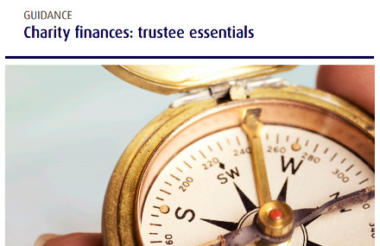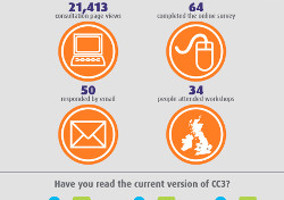The Charity Commission has updated its guidance for trustees about their financial duties to make it more accessible.
Trustees’ legal duties have not changed but the refreshed guidance aims to be “more accessible and readable”.
Charity finances: trustee essentials (CC25) is the regulator’s overarching financial guidance and is intended to be the ‘go-to’ piece of guidance. In many places it links to the regulator’s more detailed guidance on certain issues.
It reminds trustees that “a charity can only succeed in meeting its aims if it manages its money properly” and includes sections about reviewing finances, identifying and managing risk, internal financial controls, reserves, managing financial difficulty.
There are also sections on income generation and staff and volunteers.
The commission also republished another document - Charity governance, finance and resilience: 15 questions trustees should ask - and said it is conducting a “wider ongoing review of how it supports trustees in this area”.
This review will include working with external partners and umbrella bodies.
‘Robust financial management is vital’
Paula Sussex, chief executive of the commission, said: “Robust financial management is vital to ensure that charities are able to meet the needs of their beneficiaries and also to increase public trust and confidence in the charitable sector. We’ve seen in our casework that weak financial governance can be extremely destabilising for charities, affect their ability to operate, and leave them vulnerable to fraud and abuse.
She added: “We also recognise that trustees often don’t have the time or resources to read multiple lengthy documents on good practice. Charity finance: trustee essentials will act as the ‘go-to’ financial publication that trustees and charity staff can refer to, to address any knowledge gaps or get assurances on whether they are doing the right thing.”
Backed by CFG
The Charity Finance Group said that good financial management is “more important than ever”.
Caron Bradshaw, chief executive of the CFG, said: “While most charities manage their resources well, we know that there are gaps in skills and knowledge, particular for smaller organisations.
"Charities must put financial management and leadership at the heart of their organisation in the years ahead.
“As we face choppy waters with continued funding pressures and the risk of economic instability, it is more important than ever that charities have the capacity to manage their finances and adapt their business models.”
She added that she was pleased the commission had taken a “collaborative approach” to forming its new guidance.
From Governance & Leadership
Call for support from finance professionals
In a speech last night at the ICAEW’s annual dinner, Sussex also called for more support from finance professionals.
She said: “We want to see you helping raise trustees’ game, really making a difference to charity governance and financial management.
“Our expectations are in line with the Institute’s work in this area and broader ambitions. Your manifesto for charities calls for the same improvements in trustee competence that we are trying to bring about.
She added the commission and the ICAEW were in discussions about working more closely on online education provided by the ICAEW.
“We are also talking together about how the Institute as a professional membership body can do more to support and promote adherence to the revised Code of Good Governance for the Voluntary Sector. Our partnership is important and we value it,” she said.
Related articles












